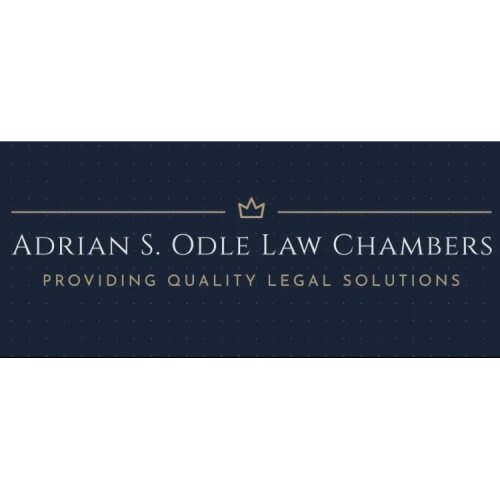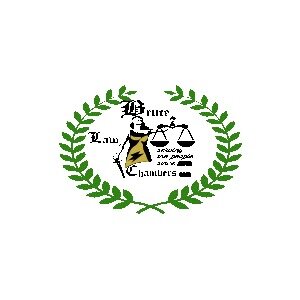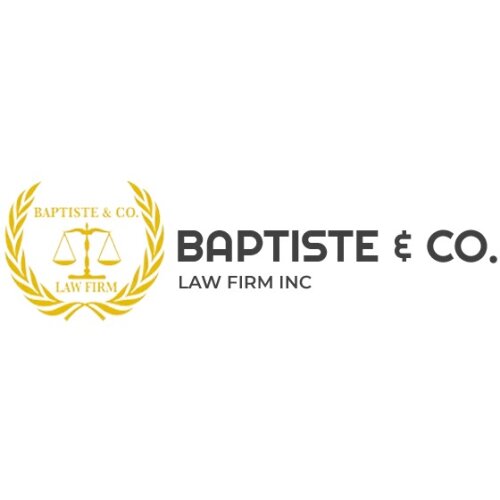Best Merger & Acquisition Lawyers in Kingstown
Share your needs with us, get contacted by law firms.
Free. Takes 2 min.
List of the best lawyers in Kingstown, Saint Vincent and the Grenadines
About Merger & Acquisition Law in Kingstown, Saint Vincent and the Grenadines
Merger and Acquisition (M&A) law in Kingstown, Saint Vincent and the Grenadines is a specialized area of corporate law that deals with the consolidation of companies or assets. This typically includes mergers, acquisitions, consolidations, tender offers, purchase of assets, and management acquisitions. As a hub for international business and offshore finance, Kingstown offers a favorable environment for M&A activities, fostered by its legal infrastructure and regulatory framework. The law governing M&A in this jurisdiction is designed to ensure fair play, protect shareholder interests, and support corporate growth and structural changes within businesses.
Why You May Need a Lawyer
Navigating the complex legal landscape of M&A can be challenging without expert guidance. Here are some common situations where legal assistance may be necessary:
- Negotiation and Drafting of Agreements: To ensure clear and enforceable terms, negotiating and drafting of M&A agreements require legal expertise.
- Due Diligence: Conducting thorough due diligence is crucial to uncover potential liabilities and evaluate the true value of the target company.
- Regulatory Compliance: Ensuring compliance with local laws and regulations is vital to avoid potential legal pitfalls.
- Structuring the Deal: Legal counsel can help structure the deal in a way that aligns with strategic goals and brings tax efficiency.
- Dispute Resolution: Addressing conflicts or disputes that arise during or after the M&A process requires legal intervention.
- Cross-border Transactions: International mergers can involve diverse jurisdictions and legal systems, requiring specialized legal expertise.
Local Laws Overview
The legal landscape for M&A in Kingstown, Saint Vincent and the Grenadines, is shaped by several critical laws and regulations:
- Companies Act: Governs the formation, management, and dissolution of companies, providing the foundation for M&A transactions.
- Securities Act: Regulates securities offerings and trading, crucial for public company mergers and acquisitions.
- Competition Laws: Designed to prevent anti-competitive practices and ensure fair market operations, impacting the approval of mergers.
- Tax Regulations: Affect the financial structuring and tax obligations resulting from M&A activities.
- Employment Laws: Address employee rights and obligations during transitions due to mergers or acquisitions.
Frequently Asked Questions
What is the difference between a merger and an acquisition?
A merger involves the combination of two companies to form a new entity, while an acquisition is the purchase of one company by another, where the acquired company becomes part of the buyer.
Do I need to notify any governmental body before completing an M&A deal?
Yes, depending on the size and nature of the transaction, there may be notification requirements to regulatory bodies, especially concerning competition and securities regulation.
What are the key stages of an M&A transaction?
The key stages include strategy development, target identification, due diligence, negotiation and signing of agreements, obtaining necessary approvals, and the final closing of the deal.
How long does the M&A process typically take?
The duration varies widely depending on the complexity of the deal, ranging from a few months to over a year.
What role does due diligence play in M&A?
Due diligence is crucial for assessing risks, uncovering liabilities, and verifying the financial health and compliance status of the target company.
Are there restrictions on foreign entities acquiring local businesses?
Yes, there may be restrictions and additional scrutiny for foreign entities, especially in certain sectors deemed sensitive or critical.
What is an earn-out in an M&A deal?
An earn-out is a contractual agreement in which the buyer agrees to pay the seller additional compensation based on the future performance of the target company.
How are employees affected by a merger or acquisition?
Employees may experience changes in management, restructuring, or alterations to employment terms, which must comply with local employment laws.
What happens if the deal is not completed?
If a deal falls through, parties usually rely on terms set out in the agreement concerning break-up fees or other financial compensations.
Can a minority shareholder block a merger?
This depends on the voting rights and stipulations contained within the corporate governance documents, but generally, significant minority rights can impact decisions.
Additional Resources
For further guidance and support on M&A matters, consider reaching out to the following resources:
- Financial Services Authority: Provides regulatory oversight and guidance for financial transactions, including M&A.
- Local Law Firms: Offer specialized legal counsel and representation in M&A activities.
- Chamber of Commerce: A resource for understanding the business landscape and facilitating corporate interactions.
- Business Advisory Services: Various private consultancies offer advisory services in M&A strategy and implementation.
Next Steps
If you require legal assistance in an M&A transaction, consider the following steps:
- Identify Your Needs: Determine the specific legal services you require based on your M&A objectives.
- Consult a Specialized Lawyer: Reach out to a lawyer or law firm with experience in M&A within the region.
- Prepare Documentation: Gather relevant business documents to assist your legal counsel in assessing your case.
- Legal Consultation: Schedule consultations to explore your options and develop a strategic approach to your M&A activities.
- Stay Informed: Continuously educate yourself on M&A trends and changes in local laws to make informed decisions.
Lawzana helps you find the best lawyers and law firms in Kingstown through a curated and pre-screened list of qualified legal professionals. Our platform offers rankings and detailed profiles of attorneys and law firms, allowing you to compare based on practice areas, including Merger & Acquisition, experience, and client feedback.
Each profile includes a description of the firm's areas of practice, client reviews, team members and partners, year of establishment, spoken languages, office locations, contact information, social media presence, and any published articles or resources. Most firms on our platform speak English and are experienced in both local and international legal matters.
Get a quote from top-rated law firms in Kingstown, Saint Vincent and the Grenadines — quickly, securely, and without unnecessary hassle.
Disclaimer:
The information provided on this page is for general informational purposes only and does not constitute legal advice. While we strive to ensure the accuracy and relevance of the content, legal information may change over time, and interpretations of the law can vary. You should always consult with a qualified legal professional for advice specific to your situation.
We disclaim all liability for actions taken or not taken based on the content of this page. If you believe any information is incorrect or outdated, please contact us, and we will review and update it where appropriate.











